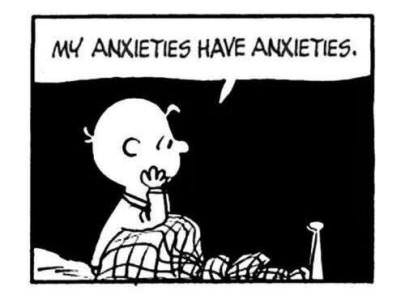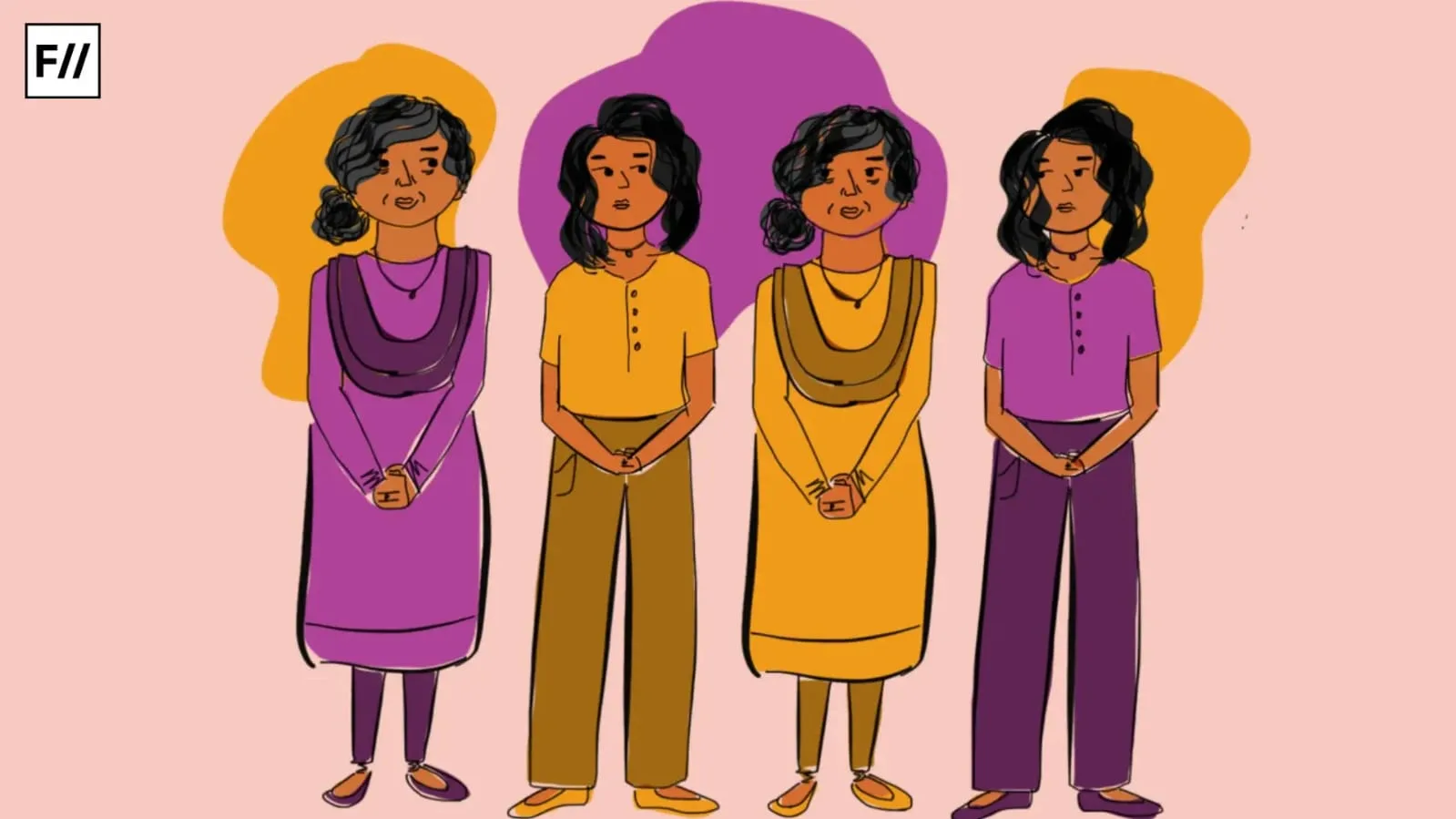I have been dealing with anxiety and depression for essentially my whole life. I’m a young woman who first felt symptoms of depression in my early teens and has been feeling anxious for as long as I can remember. I’m a point in my life now, where I more or less understand what works for me and what doesn’t. But, when I was exploring my options and figuring out how to deal with these blocks, something I was never allowed to forget was what was expected of me as a girl/woman. It is because of the way I was expected to be, and the backlash I faced for not living up to those expectations, that my anxiety turned into high-functioning anxiety.
High-functioning anxiety is when someone doesn’t necessarily allow their symptoms to show, and instead accomplishes all of their tasks in spite of their anxiety. Many times, the source of anxiety becomes the up keep of the appearance of achieving everything you’re expected to do, to seem like you have everything put together, while on the inside you’re full of anxiety.
Perhaps it stems from the same “boys will be boys” logic. Growing up, boys are allowed to be rowdy, not clean up after themselves, be rude, etc while girls aren’t. This same framework still followed me in terms of my mental health. Growing up with a large extended family, it was made very clear to me from an early age what my expectations were as a woman. I learned girls were supposed to be gentle, and take care of people and situations. I learned girls were supposed to not get angry, and learn how to adjust to every situation.
It is because of the way I was expected to be a girl/woman that my anxiety turned into high-functioning anxiety.
As an anxious person, there are many times where I get irrationally upset or scared. My own symptoms lead me to not being able to control crying, shaking, shortness of breath, dizziness. When I showed these symptoms growing up, I was told to repress them. Every signal I was getting from people around me, was to somehow control what I wasn’t able to. Because I wasn’t able to control them or let alone know how to manage them at that point in my life, I was ostracized from people for being batameez (ill-behaved). I wasn’t treated with the same respect that people expected me to give to others.
The expectation that women always have to be emotionally perfect is ridiculous. Let alone expecting that from a young person. My situation around family members and people who I showed my symptoms too became worse. I was not in control of my behavior and I was not getting any grace.
Also read: Boyhood And The Dangers Of Toxic Masculinity
I slowly realized that the only way to at least manage my own mental sanity around my family members was to work around my illness in ways that suited them. By the time I was 18, I understood how to perform gender expectations despite my own mental blocks. I avoided “sensitive topics”. I was nice to people who were not nice to me. I would isolate myself when I started to feel anxious. I would even go as far as to run to the bathroom and wait for my symptoms to pass until returning. This became an easier outlet for me. Rather than face the additional backlash from relatives, I was more comfortable suppressing them until I was alone.
The expectation that women always have to be emotionally perfect is ridiculous.
It’s almost as though this sort of expected behavior has forced me into becoming a highly functioning anxious person. I’m now at a point, where to the average person I seem calm and collected. I put a lot on my plate, and somehow manage to get through that as well. Because I’m a woman, I’ve also learned how to not show it. This is all because when I was trying to figure out how to deal with my illness, I got such an intensely negative reaction, it started to become easier for me to just play into other people’s expectations of me.
I didn’t even realize that this had happened until I began getting extremely uncomfortable with the excessive amount of praise I was receiving from family members. I quickly climbed the ladder of being an “acceptable” person, so much so that people began to use my kindness against me. It’s almost as though my anxiety is rooted in being highly functional, so as to not seem atypical at all.
Just to be clear, compassion isn’t inherently a gendered trait. It is something positive I was raised with, but the way I am expected to enact compassion is highly gendered. My compassion is used against me to make other people feel more comfortable. It’s used to box me into my expectations, but not enough that I actually show any other emotion other than “positive” ones. As a woman, I’m expected to show compassion even to those who are not deserving of it, and with high-functioning anxiety, it becomes impossible to not live up to those expectations.
Just to be clear, compassion isn’t inherently a gendered trait.
It wasn’t until I realized how differently the men in my family were being treated, that I wondered whether this actually was better for my mental health or not. Forget mental health issues, if a man showed excessive anger, frustration, or even rudeness it was acceptable. And unfortunately, in Indian communities, this is standard. Seeing men lash out, or behave badly, yet not having that reflect on their mental or moral state really made me question what I had forced myself into. The whole idea of adjustment, which was so heavily pushed down my throat, was for the inevitable fact that I would have to adjust for my husband because men do not compromise, and women’s sacrifices are treated as compromises.
It was the combination of feeling uncomfortable with the onslaught of praise for my “improvement” and the fact that most of my anxiety would come out in sudden extreme burst because of being repressed for so long, that I questioned whether this was the most healthy way of coping for me. I’m definitely being more “productive”, in a way that is acceptable both to patriarchy and capitalism, but I’m not sure if it means I’m more healthy.
I’ve reached a stage now, that realizing all of this, I try to let myself relax and take it easy more than I did before. Despite the fact that women are always labeled as overly emotional, we aren’t actually allowed to express anything other than positive ones. Women are not allowed to be angry, emotional, or upset. And I have found the people who will not manipulate any of those positive or negative emotions into a test of my character. But despite being at a stage where I can analyze that, the way I’ve grown up still has an impact on the way I understand how anxiety affects me. I still have trouble taking a step back and being comfortable with my symptoms. I’m still high-functioning, even though I’m not sure if it works.
Read More: Living with Depression and Anxiety: A Resource List
Featured Image Credit: Charles M. Schultz’ Charlie Brown, From the Peanuts Cartoons
About the author(s)
Jasveen is currently a student at the New School studying poetry, race and ethnicity, and gender studies. You can find her either in New Delhi or New York. She's interested in gender justice, religion, diverse art, and class reform. Her twitter is: @jasveenflies





You are describing me. Almost. I’m at the point where I realise I do not have to conform to any body’s expectations. I can ask for help when I want. I don’t have to be perfect.
But, as you put it, it has taken a long way to reach this place. I will not compromise or sacrifice my needs for others. I don’t want to be the best behaved daughter – in-law anymore.
Where did the expectation that “women have to be emotionally perfect” come from? Your parents said that?